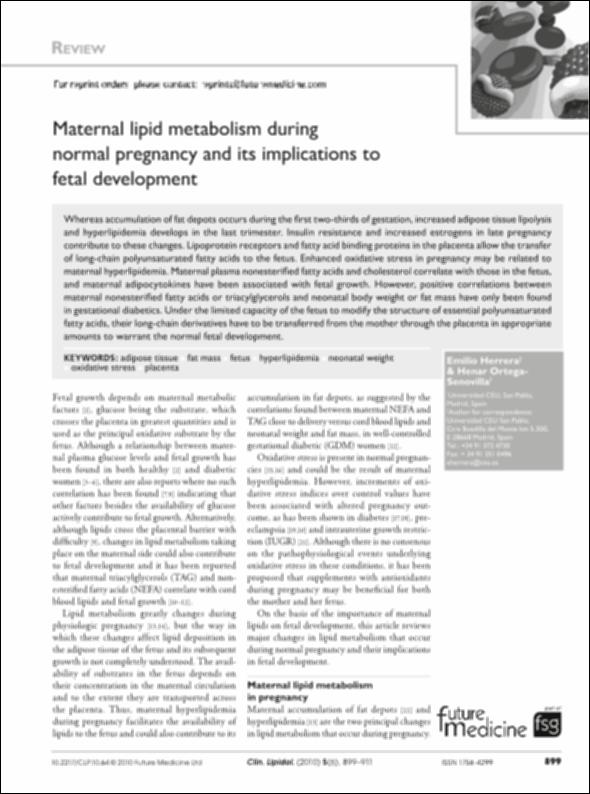Please use this identifier to cite or link to this item:
http://hdl.handle.net/10637/3368Maternal lipid metabolismo during normal pregnancy and its implications to fetal development.
| Title: | Maternal lipid metabolismo during normal pregnancy and its implications to fetal development. |
| Authors : | Herrera Castillón, Emilio. Ortega Senovilla, Henar |
| Keywords: | adipose tissue; fat mass; fetus; hyperlipidemia; neonatal weight; oxidative stress; placenta |
| Abstract: | Whereas accumulation of fat depots occurs during the first two-thirds of gestation, increased adipose tissue lipolysis and hyperlipidemia develops in the last trimester. Insulin resistance and increased estrogens in late pregnancy contribute to these changes. Lipoprotein receptors and fatty acid binding proteins in the placenta allow the transfer of long-chain polyunsaturated fatty acids to the fetus. Enhanced oxidative stress in pregnancy may be related to maternal hyperlipidemia. Maternal plasma nonesterified fatty acids and cholesterol correlate with those in the fetus, and maternal adipocytokines have been associated with fetal growth. However, positive correlations between maternal nonesterified fatty acids or triacylglycerols and neonatal body weight or fat mass have only been found in gestational diabetics. Under the limited capacity of the fetus to modify the structure of essential polyunsaturated fatty acids, their long-chain derivatives have to be transferred from the mother through the placenta in appropriate amounts to warrant the normal fetal development. |
| Description: | En: Clinical lipidology. 2010. n. 5, 899-911 p. ISSN. 1758-4302 |
| URI: | http://hdl.handle.net/10637/3368 |
| Rights : | http://creativecommons.org/licenses/by-nc-nd/4.0/deed.es |
| Issue Date: | 19-Sep-2010 |
| Center : | Universidad San Pablo-CEU |
| Appears in Collections: | Facultad de Farmacia |
Items in DSpace are protected by copyright, with all rights reserved, unless otherwise indicated.


